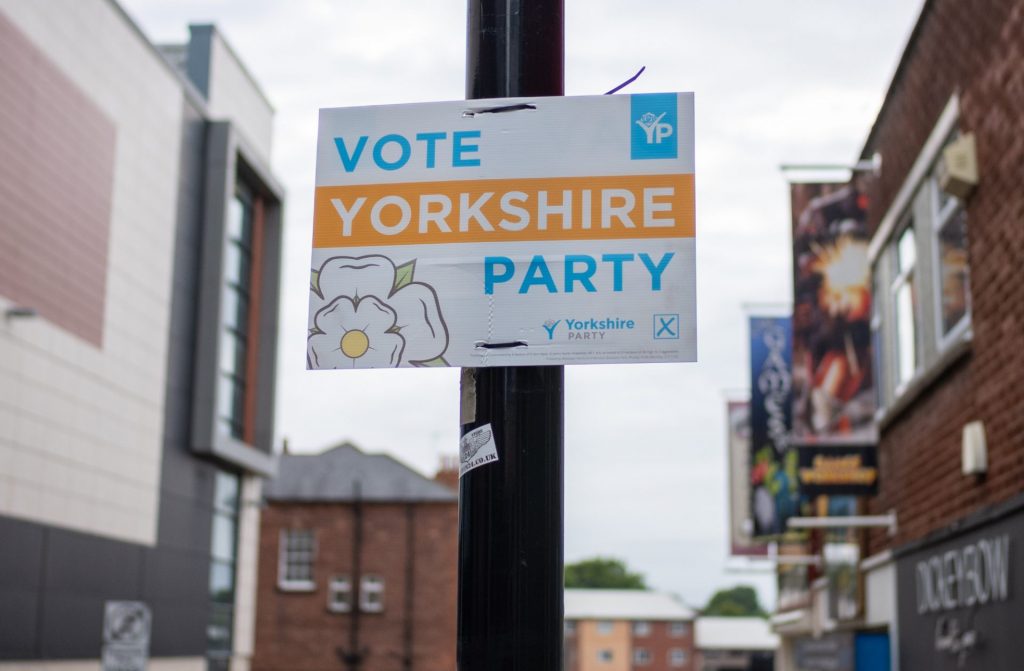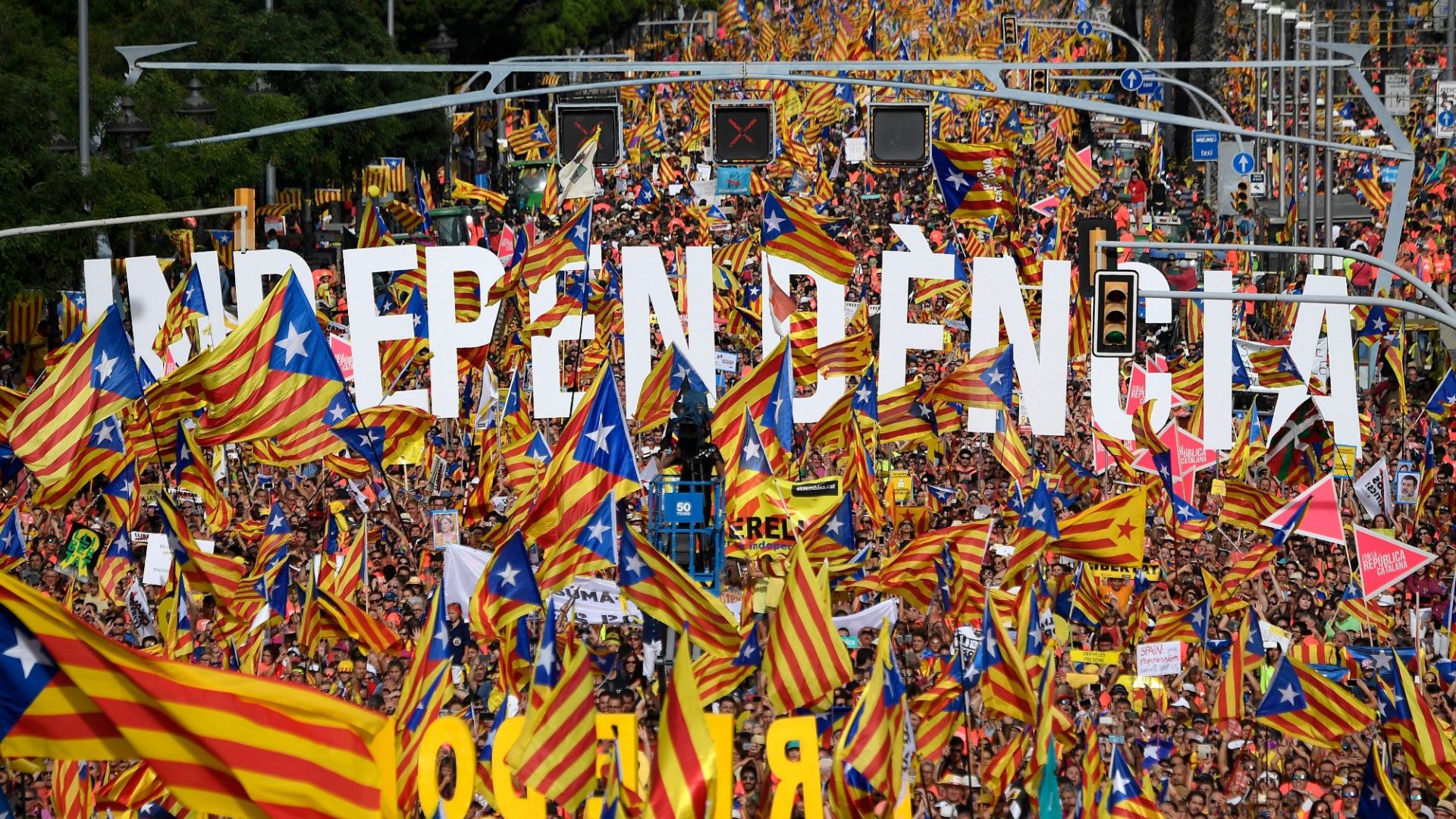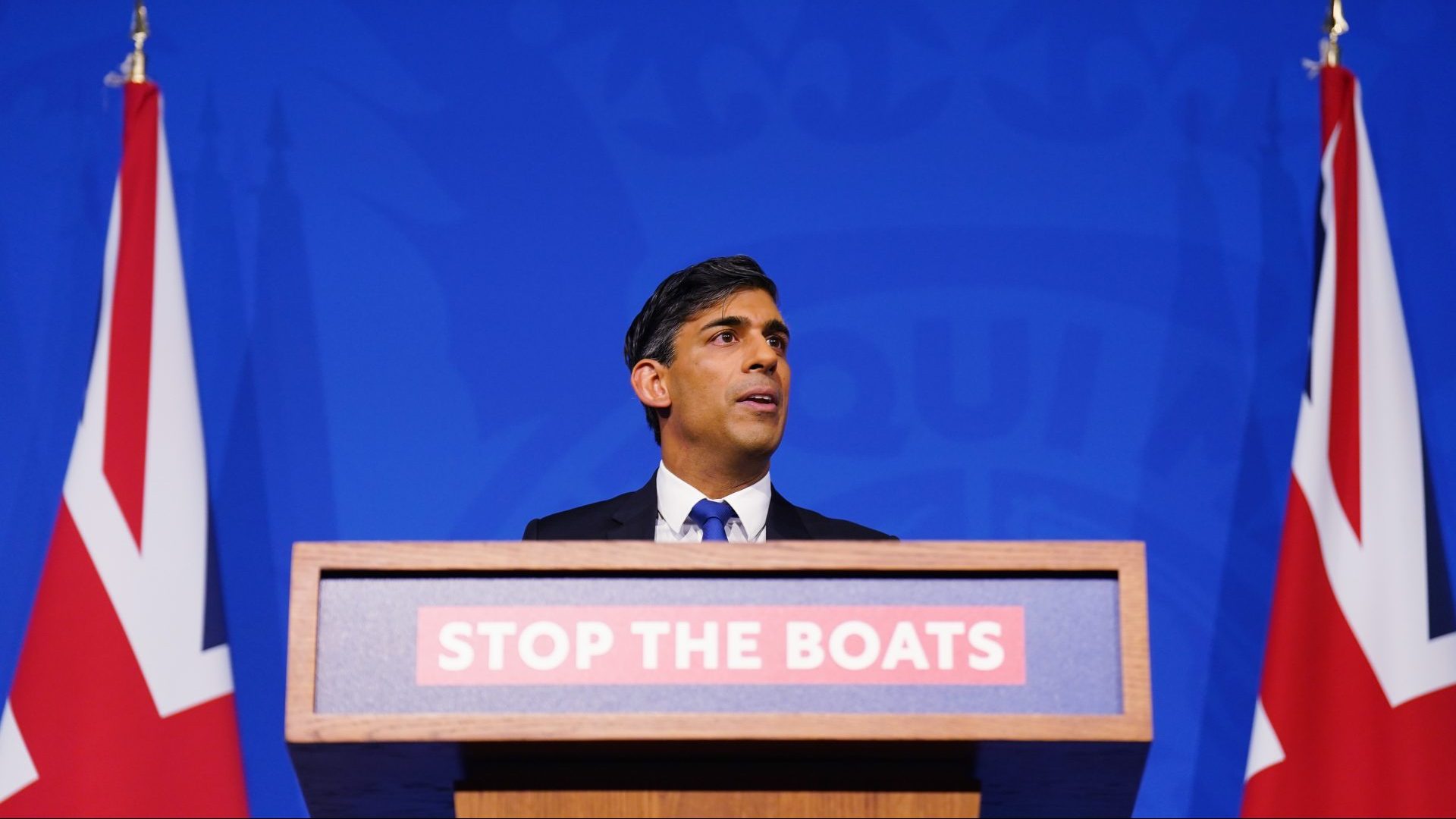Bob Buxton talks with the passion of a man who believes his moment, and the moment of the people he represents, has arrived. “We are prepared to fight for what we think is right. And we are stubborn. We’ve been neglected and want a voice.”
Buxton, 44, sounds like he might be quoting from a speech by the former Scottish National Party leader Nicola Sturgeon, or reading a translation of a declaration by Catalan separatists. In fact, he is talking about Yorkshire.
The joint leader of his county’s eponymous party goes on: “There’s a lack of democratic accountability.” The Yorkshire Party is one of around 100 active separatist movements in Europe of various hues and with various demands. It has many bedfellows across England. The likes of Cumbria First, the East Devon Alliance, and Mebyon Kernow (which regards Cornwall as a distinct Celtic nation) campaign along similar lines.
Of course, Yorkshire has long been England’s counterpart to Bavaria or Texas, a regional entity not intent on ceding entirely from a larger nation – “independence would be insane” insists Buxton – just happy to point out it is the best part of it.
The Yorkshire Party campaigns for devolution for England’s largest county and is a member of the European Free Alliance (EFA) representing progressive political parties making separatist claims.
As Buxton has elucidated, neither the Yorkshire Party nor Mebyon Kernow, fellow EFA members, demand full independence, unlike the SNP or other separatist groups across Europe.

The politically savvy will doubtless be aware of the Catalan nationalists who sprang back into the headlines following Spain’s snap 2023 election. There was horse trading aplenty as prime minister Pedro Sánchez scrambled to form a government.
The seven seats held by hardline nationalists Junts per Catalunya (or Together for Catalonia), whose leader Carles Puigdemont is in exile after organising a referendum on Catalan independence in 2017 deemed illegal by the Spanish government, came into play. The Sánchez government is now offering amnesties to Puigdemont and his allies, attempting to bring them on board. Currently, Puigdemont intends to run in elections in Spain in 2024 even from exile.
The Catalans are, of course, one of the more obtrusive European separatist movements. The most prominent – such as Plaid Cymru, Italy’s Lega (formerly Lega Nord) and the Basque Nationalist Party – frequently make headlines for impassioned, peaceful campaigning.
Others make the news via more egregious means – in the Basque region of Spain, Euskadi Ta Askatasuna (ETA), fought a decades-long armed campaign against the Spanish state which only ended in 2010. Similarly, until 1997 in Northern Ireland the Provisional IRA sought to end British rule there through paramilitary activity which claimed hundreds of lives.
All these organisations are but the tip of a large secessionary iceberg poking holes in nearly every established European nation. Who, for example, has taken note of the claims of the Frisian National Party, Austria’s Unity List or Ilinden-Pirin, the United Macedonian Organisation campaigning for ethnic Macedonians in Bulgaria?
Some demand full independence, others devolution. Many merely want more autonomy. What motivates them? Why do their aims differ?
Philip Steinberg, professor of political geography at Durham University’s International Boundaries Research Unit, says: “In many cases, motivations are not straightforward. For instance, some movements seek full statehood while others use the pursuit of statehood (or the trappings of potential statehood that accompany such a pursuit) to signify they exist. In these latter cases, obtaining the powers of a sovereign state might not be that important.”
John Breuilly, emeritus professor at the London School of Economics, divides factions more by objectives than motivations. “I suggest seeing these objectives as a hierarchy. At the top is the formation of a sovereign nation-state, at the bottom are regional concessions ranging from local autonomy to guaranteed positions in central government.”
Many of these could be seen in terms of bargaining positions which can change depending on what is achievable.”
There are also geographical and historical differences. “In western Europe, you can identify two axes: economic and cultural,” says Breuilly. “Economically there is distinction between what one might call ‘rich’ and ‘poor’ movements.”
The former might include the New Flemish Alliance of Flanders, which believes the poverty of the rest of Belgium stifles progress. Conversely, Mebyon Kernow demands more investment in Cornwall, one of England’s poorest regions. In the 21st century, such economic arguments have, in the main, replaced the violence formerly the hallmark of organisations such as ETA.
Both the New Flemish Alliance and, although it now rejects the policy, Lega in northern Italy have demanded secession from poorer regions of their nations. Whether finance alone should be motivation for the dissolution of an entire nation is possibly more a moral question than one of patriotic imperative. Breuilly’s cultural separatists are more likely to embrace the latter and include the likes of the Breton Democratic Union in France or Spain’s Galician Nationalist Bloc.
However, Breuilly believes separatists in eastern Europe have different motivations. “In former communist Europe where state breakdown preceded secessionist movements, the issues are more about political and military power than culture,” he notes.
If Russia, which thanks to its size and politics is home to many separatist groups, is excluded then, based on EFA membership, Italy, France and Spain have the most – seven each. In total, the EFA represents almost 50 organisations in 19 countries.
But more are in abeyance, temporarily suspended, unofficial or outlawed. The full list tops 200 and includes the likes of Canvey (the island east of London) and Alderney (of the Channel Islands).
Aside from those demanding independence, devolution or more autonomy are ethnic groupings who wish to be united (or reunited) with another nation with which they believe they share kinship – Hungarians in Romania or Albanians in Kosovo for example.
All have one thing in common: a belief their lot will be improved by controlling their own affairs, be that because they are oppressed, misunderstood, constrained or possess a manifest destiny they assume is unfulfilled.
Unsurprisingly, Europe’s numerous historical conflicts have created divided territories. “Only three people really understood the Schleswig-Holstein business: the Prince Consort who is dead, a German professor who has gone mad, and I who have forgotten all about it,” declared British statesman Lord Palmerston in 1864. And still it rumbles on.
In southern Denmark, the Schleswig Party represents ethnic German speakers in North Schleswig, near the German border. Over the border in Germany are the Ethnic Danes of South Schleswig represented by the South Schleswig Voter Federation.
Both have existed since 1920 when the Schleswig Plebiscite split the territory. While small reunification movements exist in both nations, public support is lacking. Breuilly suggests such disputes never rise beyond peacefully mundane because the existing states offer cordial means of conflict resolution.
German speakers in Belgium have similar concerns to their Schleswig counterparts. The Pro-German-speaking Community (or ProDG) party holds six seats in Belgium’s regional Government of the German-speaking Community, one of the world’s smallest federal entities.
The ProDG succeeded the Party of German-speaking Belgians (or Partei der Deutschsprachigen Belgier), a founder EFA member expelled for having links to far right groups and tacitly supporting irredentism – the belief one state can annex the territory of another because the population there has ethnic links to the parent state.
ProDG leader Oliver Paash has said irredentism is dead in modern Europe, but that “doesn’t mean minorities should be subsumed.”
Irredentism frequently rears its head in relation to Hungarian minorities dispersed around eastern Europe. The 1920 Treaty of Trianon created a new Hungarian state from the ashes of the defeated Austro-Hungarian Empire following the first world war.
In one fell swoop it reduced the size of Hungary by two-thirds, leaving significant pockets of Hungarian speakers inside other states. Since then politicians of various hues – not least Brexit-admiring Hungarian prime minister Viktor Orbán – have attempted to make political capital out of Hungary’s “Trianon Trauma”.
While Orbán’s populist Fidesz party denies it, it frequently deploys the Trianon-inspired slogan “mindent vissza” (or “everything back”) which has galvanised Hungarian separatists in Romania.
In 2020 the Democratic Alliance of Hungarians (UDMR) in Romania, after years of peaceful coexistence, began demanding autonomy for Romania’s 1.2 million Hungarian speakers. Rejected by the Romanian parliament, the UDMR initiated closer ties with Fidesz, moving from protecting the cultural rights of Szeklers – Romania’s Hungarian minority – to demanding self-governance.
“It would be no surprise to see elements of the UDMR demand unification with Hungary,” says Gabor Egry, director of the Budapest-based Institute of Political History. Of the aforementioned conflicts, Egry believes the ones with the highest propensity for violence are those involving the Hungarian minorities.
Also of concern is government-supported separatism. Most obviously, Russian-backed movements in eastern Ukraine could lead to entirely new states being declared. North Cyprus provides a historical parallel.
Effectively it is an extant state, but one unrecognised by any United Nations member except Turkey, following the latter’s annexation of the northern part of Cyprus in 1974.
Although most Turkish Cypriots support secession from Greek-speaking southern Cyprus, this is unlikely ever to be ratified by the UN. “Under the current fragile state of geopolitics, such government-sponsored acts may become more commonplace,” says Egry.
Elsewhere, more benign organisations believe, as does the SNP, that what was once a single nation, should again become one, as happened with the Czech Republic and Slovakia at the end of 1992 in what was called the Velvet Divorce, due to its non-violent denouement.
Ironically, one such previously subsumed nation is Moravia, alongside Bohemia and Czech Silesia, one of three lands constituting today’s Czech Republic. The Moravané party campaigns for self-determination leading to independence. It believes the Prague government “occupies” Moravia and suppresses Moravian culture.
Yet most Moravians seem to disagree, Moravané has never reached the voter threshold for Czech parliamentary representation.
And as an aside, some Silesians who live in the Czech Republic, Poland and Germany are one of another subset of separatist groups demanding a new nation where none existed before, and which currently overlaps more than one other. More than 800,000 people claim Silesian identity and it has a diverse culture and separate language.
But beyond the politicking and the victimised rhetoric, there is a deeper question. Why do we live in nation-states at all? Are they even necessary or desirable, considering they frequently lead to conflict?
Breuilly explains that the nation-state is a relatively modern construct. “People had ethnic and cultural identities but these didn’t define the entity they lived in. Nationalist ideology barely existed. In 1800 almost nobody in France thought of themselves as French. A hundred years later they all did.”
Conversely, some forms of nationalism can potentially be a force for the betterment of discrete regional entities. “In certain circumstances, say Francisco Franco’s oppression of Catalan and Basque culture after the Spanish civil war, there are arguments to suggest nationalism can be beneficial. Look at how Ukraine has used a unifying narrative,” says Egry “On the other hand nationalism can easily morph into exceptionalism or even fascism.”
Bob Buxton admits organisations like his are often identified with an unpleasant strand of nationalism. “Certainly the default assumption is we are one extreme or the other, most likely right wing. But in fact the Yorkshire Party considers itself centrist-left, liberal and inclusive.”
So what of the future? What chance the Yorkshire Party among others will succeed? “It’s a difficult question,” says Steinberg. “I will say, though, that states are generally wary of other states changing their boundaries. It sets a precedent for aspirational independence movements that lie within their own.”
But, as John Lennon suggested, imagine if there were no countries at all. Would separatists, at a stroke, be emasculated or invigorated?
In 2014, the New Scientist wrote: “Is the nation-state a natural, inevitable institution? Or a dangerous anachronism? More and more people want their own state, from peaceful Scots to jihadis. Yet the limitations of nation-states are clear. The truth is they are temporary solutions to specific historical situations. The way we govern our affairs is due for change.”
Bob Buxton might agree change is due, but whether he’d agree with the New Scientist’s proposal is another subject. Regional identity matters to many people of whatever political persuasion.
Maybe the nation-state is here to stay. While that remains so, there will always be groups of individuals who would, for better or worse, prefer to dwell in another.




